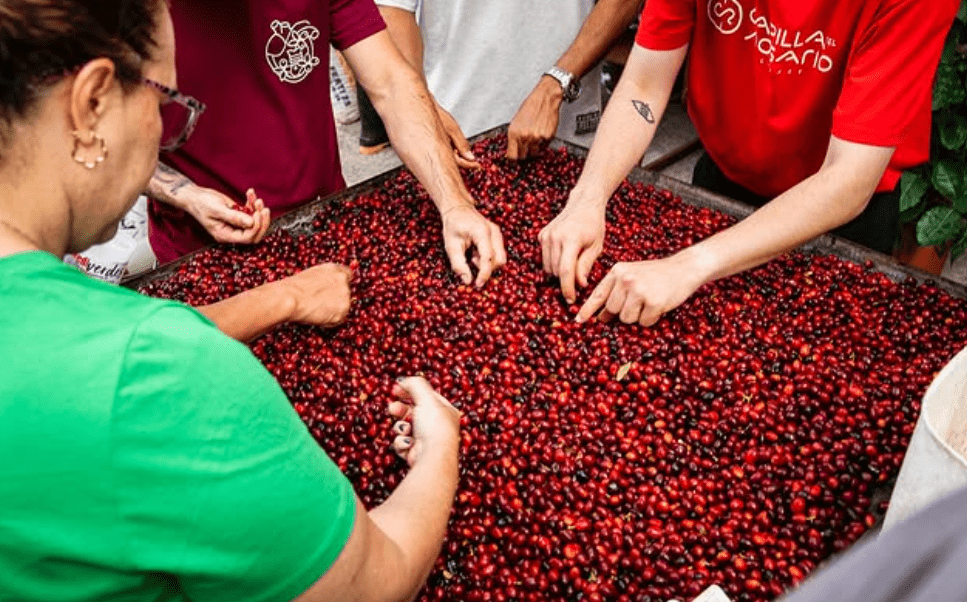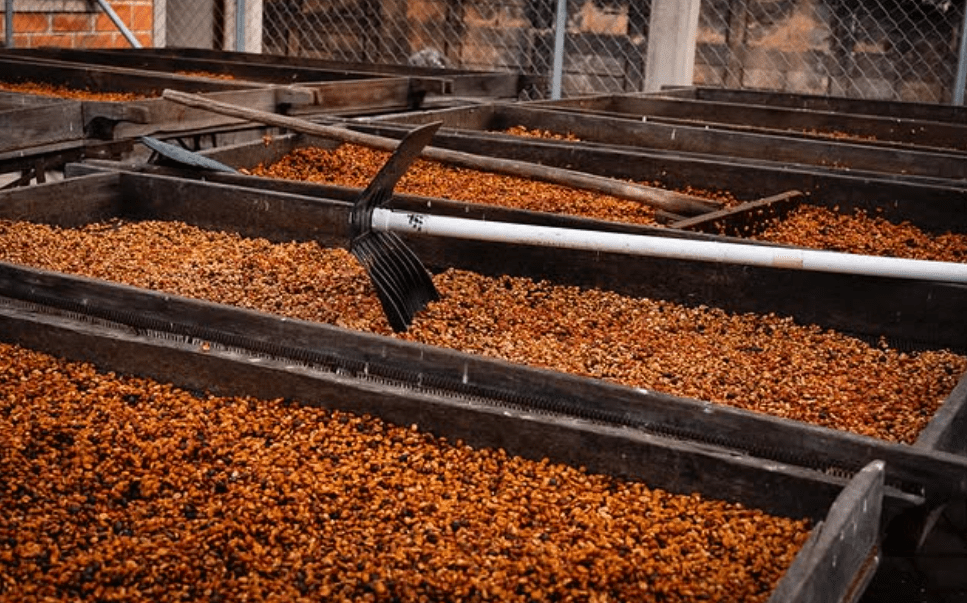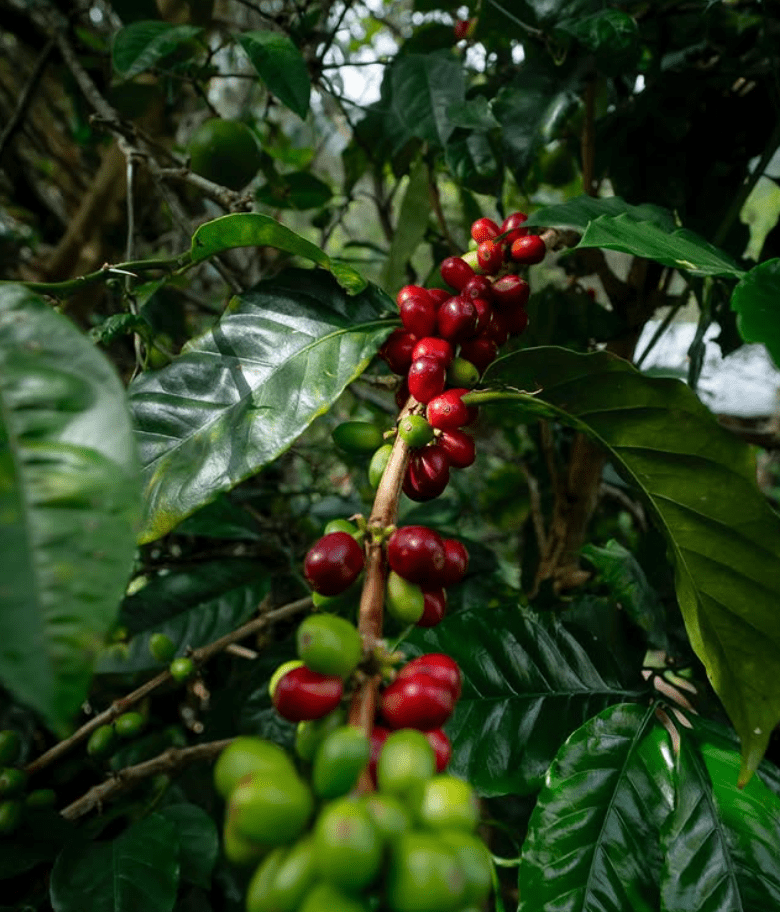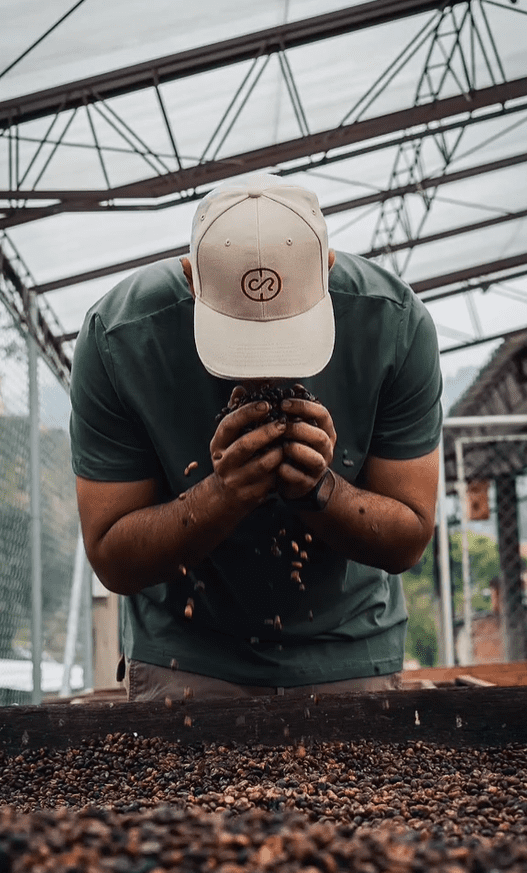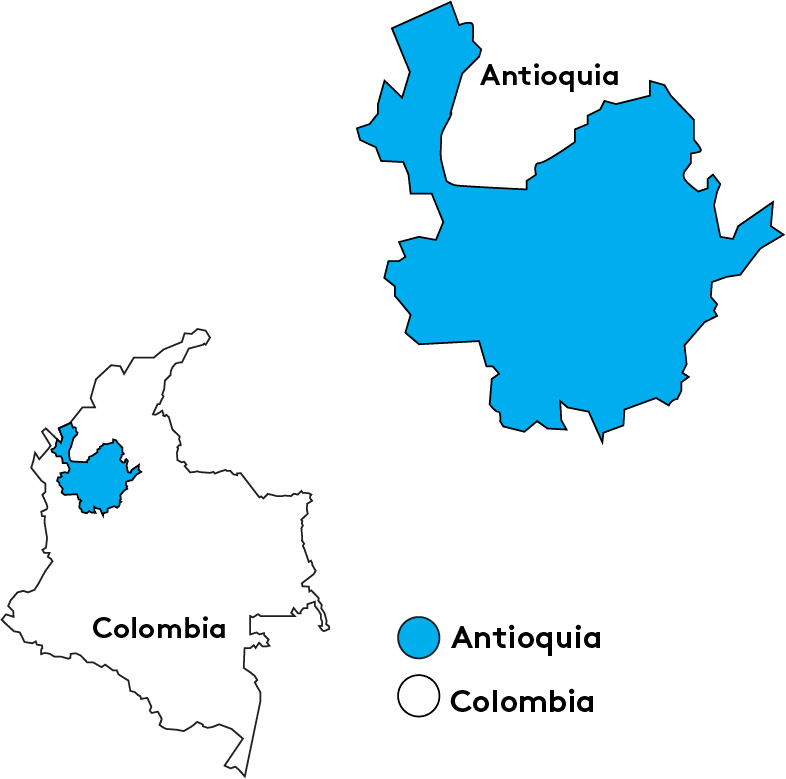Nestled in the mountains of Medellín, Colombia, Capilla del Rosario is a fourth-generation family farm led by José Posada and his family. What began as a traditional coffee estate has evolved into a hub of innovation, education, and coffee tourism, positioning itself as a regional benchmark for quality and experimentation.
Spanning 45 hectares, the farm produces around 50 metric tons of parchment coffee per year, focusing on high-end microlots and experimental fermentations. Its infrastructure includes a complete wet mill, controlled fermentation tanks, shaded raised beds, mechanical dryers, a sensory lab, and a sample roastery. Beyond coffee processing, Capilla del Rosario promotes shade-grown cultivation and biodiversity preservation, reinforcing its long-term commitment to sustainability and environmental stewardship.
This Modulado Apricot reflects the farm’s dedication to scientific precision and sensory innovation. The coffee undergoes pulping prior to fermentation, then is washed and submerged in fermentation tanks containing a liquid broth enriched with apricot extracts, citric, lactic, and phosphoric acids, fruit- and cane-derived sugars, and a starter culture of Lactobacillus spp. along with mesophilic microorganisms.
This symbiotic culture of bacteria and yeast ferments in direct contact with the coffee, driving flavor development with balance and control. The Modulado method enhances sweetness, texture, and aromatic complexity, resulting in a cup with bright acidity and a distinct apricot note—achieved without artificial flavorings or additives.
After fermentation, the coffee is slowly dried on shaded raised beds with controlled ventilation, ensuring even drying and preserving the integrity of the profile.
Modulado Apricot represents an origin-driven fermentation technique that merges natural fruit extracts with microbiological precision, offering a transparent, traceable, and science-backed cup that captures the spirit of innovation and terroir at Capilla del Rosario.

